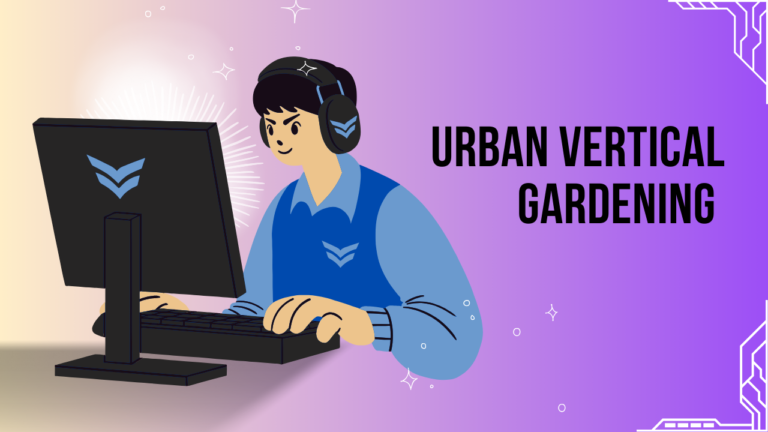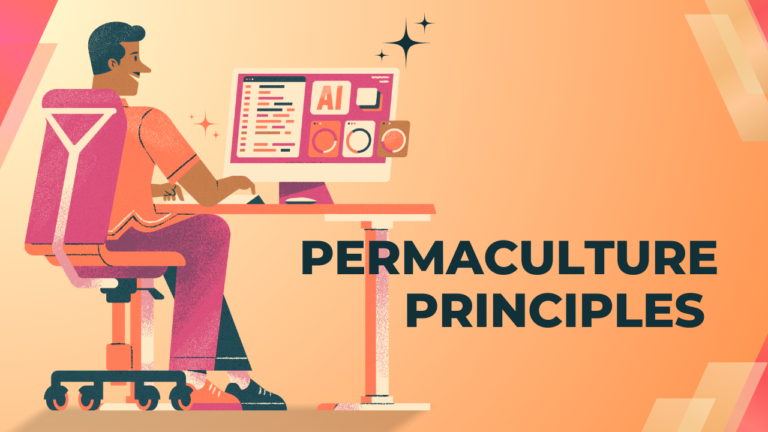Sustainable Container Gardening for Urban Dwellers: A Comprehensive Guide
Urban living often means limited space, but that doesn’t have to limit your gardening ambitions. For city dwellers who want to grow their own plants, vegetables, or herbs, container gardening offers a practical and sustainable solution. This guide will explore the best practices for sustainable container gardening for urban dwellers, ensuring you can enjoy a thriving garden in even the smallest spaces.
Why Sustainable Container Gardening for Urban Dwellers?
Sustainable container gardening for urban dwellers is not only a trend but a necessity for those living in cities. With limited access to traditional gardening spaces, container gardening allows urban residents to grow plants in small, often unconventional, spaces. By focusing on sustainability, you can reduce your environmental impact, conserve resources, and create a healthy, productive garden right in your apartment or on your balcony.
Benefits of Sustainable Container Gardening
Before diving into the specific strategies, it’s important to understand the benefits of sustainable container gardening for urban dwellers:
- Maximizes Small Spaces:
Container gardening allows you to grow a variety of plants in confined spaces such as balconies, rooftops, or even windowsills. - Reduces Environmental Impact:
By using recycled materials and organic methods, sustainable container gardening minimizes waste and conserves resources. - Promotes Healthier Living:
Growing your own vegetables, herbs, and fruits ensures you have access to fresh, organic produce right at home. - Improves Mental Well-being:
Gardening, even in small containers, has been shown to reduce stress and improve overall mental health. - Enhances Aesthetic Appeal:
A well-planned container garden adds beauty and life to urban spaces, making them more enjoyable to live in.
Getting Started with Sustainable Container Gardening for Urban Dwellers
1. Choose the Right Containers
When starting with sustainable container gardening for urban dwellers, the first step is to select appropriate containers. Consider the following:
- Recycled Materials:
Use containers made from recycled or repurposed materials like old buckets, tins, or wooden crates. This not only reduces waste but also adds a unique charm to your garden. - Size and Drainage:
Ensure that the containers are the right size for the plants you intend to grow and have adequate drainage holes to prevent waterlogging. - Eco-Friendly Options:
Look for containers made from sustainable materials like biodegradable pots or those made from recycled plastic.
2. Select Sustainable Soil and Compost
The next step in sustainable container gardening for urban dwellers is choosing the right soil and compost:
- Organic Potting Mix:
Use organic potting soil that is free from synthetic fertilizers and chemicals. This promotes healthier plant growth and supports the environment. - Homemade Compost:
Create your own compost using kitchen scraps like vegetable peelings, coffee grounds, and eggshells. This not only provides rich nutrients for your plants but also reduces household waste. - Sustainable Fertilizers:
Consider using natural fertilizers such as worm castings, fish emulsion, or compost tea. These are more environmentally friendly and support the overall health of your garden.
3. Opt for Native and Drought-Tolerant Plants
For sustainable container gardening for urban dwellers, selecting the right plants is crucial:
- Native Plants:
Choose native plants that are adapted to your local climate. They require less water, are more resistant to pests, and contribute to local biodiversity. - Drought-Tolerant Varieties:
Opt for drought-tolerant plants that can thrive with minimal water. Succulents, herbs like rosemary and thyme, and certain vegetables like peppers and tomatoes are excellent choices. - Edible Plants:
Grow your own food with edible plants like lettuce, spinach, or herbs. This not only reduces your carbon footprint but also ensures you have access to fresh, organic produce.
4. Implement Water Conservation Techniques
Water conservation is a key aspect of sustainable container gardening for urban dwellers:
- Drip Irrigation:
Set up a simple drip irrigation system using recycled materials like old plastic bottles. This ensures that your plants receive a steady supply of water without wastage. - Mulching:
Apply a layer of mulch made from organic materials like straw, leaves, or wood chips. Mulching helps retain moisture in the soil, reduces evaporation, and suppresses weeds. - Rainwater Harvesting:
Collect rainwater in barrels or containers and use it to water your garden. This reduces your reliance on tap water and is a sustainable way to nourish your plants.
Best Plants for Sustainable Container Gardening for Urban Dwellers
Here are some of the best plants for sustainable container gardening for urban dwellers:
- Herbs:
Basil, mint, parsley, and chives are easy to grow in containers and require minimal space and care. - Vegetables:
Lettuce, spinach, cherry tomatoes, and peppers thrive in containers and provide fresh produce throughout the growing season. - Flowers:
Marigolds, petunias, and nasturtiums not only add color to your garden but also attract beneficial insects like pollinators. - Succulents:
Succulents like aloe vera, echeveria, and jade plant are perfect for urban gardeners looking for low-maintenance, drought-tolerant options.
Maintaining Your Sustainable Container Garden
Maintaining your sustainable container garden involves a few simple practices:
- Regular Watering:
Water your plants in the early morning or late evening to minimize evaporation. Use a watering can or drip irrigation system to avoid overwatering. - Pruning:
Trim dead or overgrown parts of your plants to encourage new growth and maintain the health of your garden. - Pest Control:
Use natural pest control methods like neem oil, insecticidal soap, or companion planting to keep pests at bay. - Fertilizing:
Feed your plants with organic fertilizers during the growing season. Compost tea or worm castings are excellent options for sustainable fertilizing.
Final Thoughts
Sustainable container gardening for urban dwellers is a rewarding way to bring nature into your city life. By choosing the right containers, soil, and plants, and implementing water conservation techniques, you can create a thriving garden in even the smallest of spaces. Whether you’re growing herbs on your windowsill or vegetables on your balcony, sustainable container gardening allows you to enjoy fresh, home-grown produce while minimizing your environmental impact.
FAQs
Q1: What are the best containers for sustainable gardening?
The best containers for sustainable gardening are those made from recycled or repurposed materials. Look for containers that are the right size for your plants and have proper drainage.
Q2: How can I conserve water in my container garden?
To conserve water, use a drip irrigation system, mulch your plants, and collect rainwater for watering. Choosing drought-tolerant plants also helps reduce water usage.
Q3: Can I grow vegetables in containers?
Yes, many vegetables like lettuce, spinach, and tomatoes can be successfully grown in containers. Make sure the containers are large enough and provide sufficient nutrients and water.
Q4: What are some low-maintenance plants for container gardening?
Succulents, herbs like rosemary and thyme, and drought-tolerant plants are excellent low-maintenance options for container gardening.
Q5: How often should I fertilize my container garden?
Fertilize your container garden with organic fertilizers during the growing season. Depending on the plants, you might need to fertilize every 4-6 weeks.



